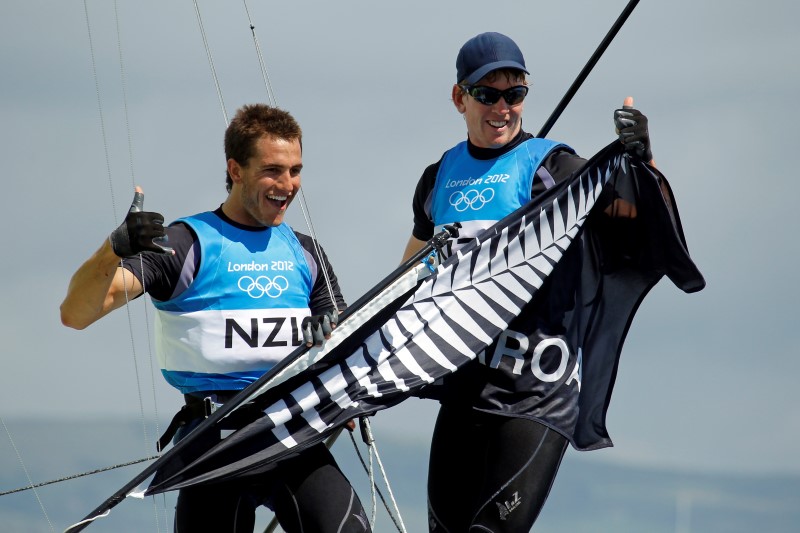By Greg Stutchbury
WELLINGTON (Reuters) - Peter Burling and Blair Tuke's impressive record since the last Olympics will mean little if the New Zealand sailors fail to put it all together on the day at next month's Rio de Janeiro Games.
Burling and Tuke, who won the silver medal in the men's 49er class at the London Games, won 27 successive regattas in the intervening four years -- a record for the class.
That run was stopped earlier this month when they finished third at the South American championships in Rio behind London gold medallists Nathan Outteridge and Iain Jensen from Australia, and Polish duo Lukasz Przybytek and Powel Kolodzynski.
Despite their success over the last four years, Burling said they were not taking anything for granted and that the recent regatta in Rio had only proved how fickle their sport could be.
"That is one of the unique things about sailing, there are just so many variables," Burling told Reuters from Auckland. "There are so many things that can go against you.
"If you don't go out and sail better than someone else on the day, you'll get beaten.
"All we can do is make sure that we're prepared for that on the day. That's how our last four years has been, preparing for Rio and being in the best shape we can be. I'm really happy where we are."
Burling and Tuke, who head back to Rio on Sunday, have juggled their Olympic preparations with commitments to New Zealand's America's Cup challenge, though they missed the most recent regatta in Portsmouth won by Ben Ainslie's British challenge.
While the last four years had been a whirlwind of airports and long haul flights due to their dual commitments, the experience had helped their Olympic planning, the 25-year-old Burling added.
Being exposed to more ideas from a bigger crew, as well as faster and bigger boats, meant he needed to adapt more quickly on the water, which had helped with their sailing of the near 5 metre long two-person skiff.
Learning about the cutting edge technology that goes into designing and building the ultra-fast foiling catamarans used in the America's Cup had also been instructional for Burling, who is "halfway through" a mechanical engineering degree.
"It has been incredibly helpful in what I'm doing in knowing and understanding what the engineers and designers are talking about," said Burling, who had to pause his studies during the Olympic cycle because of his two jobs.
"Hopefully I will get back at some stage to finish it, but ... sailing you can have a pretty long career.
"Unlike rugby you don't have injuries that can shut down your career, so I'll keep going for as long as possible."
